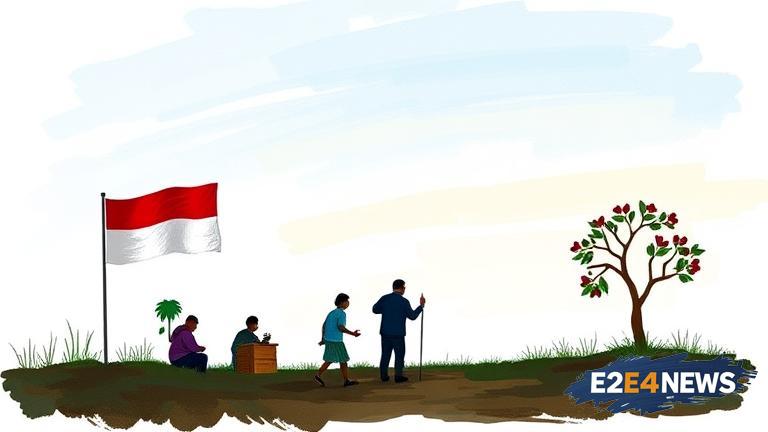The Government of Indonesia, through the Ministry of National Development Planning (BAPPENAS), has partnered with the United Nations Economic and Social Commission for Asia and the Pacific (UN ESCAP) to enhance climate resilient social protection in the country. This collaboration aims to promote sustainable development, reduce poverty, and improve the overall well-being of the Indonesian population. Climate change has become a significant concern for Indonesia, with rising temperatures, more frequent natural disasters, and changing weather patterns affecting the livelihoods of millions of people. The partnership between BAPPENAS and UN ESCAP seeks to address these challenges by developing and implementing climate-resilient social protection programs. These programs will focus on providing support to vulnerable populations, such as the poor, elderly, and those with disabilities, who are often the most affected by climate-related disasters. By working together, BAPPENAS and UN ESCAP hope to reduce the impact of climate change on Indonesian communities and promote sustainable development. The collaboration will involve the sharing of knowledge, expertise, and resources to develop and implement effective climate-resilient social protection strategies. This will include the development of early warning systems, climate-resilient infrastructure, and social protection programs that can help communities prepare for and respond to climate-related disasters. The partnership will also focus on promoting sustainable livelihoods, improving access to education and healthcare, and enhancing the overall resilience of Indonesian communities. Furthermore, the collaboration will involve the engagement of various stakeholders, including government agencies, civil society organizations, and the private sector, to ensure that climate-resilient social protection programs are effective and sustainable. The Government of Indonesia has committed to reducing greenhouse gas emissions and promoting sustainable development, and this partnership with UN ESCAP is a significant step towards achieving these goals. The collaboration will also contribute to the achievement of the Sustainable Development Goals (SDGs), particularly SDG 1 (No Poverty), SDG 8 (Decent Work and Economic Growth), and SDG 13 (Climate Action). In addition, the partnership will help to promote regional cooperation and knowledge sharing on climate-resilient social protection, which will benefit not only Indonesia but also other countries in the Asia-Pacific region. The collaboration between BAPPENAS and UN ESCAP is a testament to the commitment of the Indonesian government to promoting sustainable development and reducing poverty, and demonstrates the importance of international cooperation in addressing the challenges posed by climate change. The partnership will also involve the development of a climate-resilient social protection framework, which will provide a roadmap for the implementation of climate-resilient social protection programs in Indonesia. This framework will be based on international best practices and will take into account the specific needs and context of Indonesia. The collaboration will also focus on building the capacity of government agencies and other stakeholders to develop and implement effective climate-resilient social protection programs. This will involve the provision of training and technical assistance, as well as the development of guidelines and tools to support the implementation of climate-resilient social protection programs. Overall, the partnership between BAPPENAS and UN ESCAP has the potential to make a significant contribution to promoting sustainable development and reducing poverty in Indonesia, and demonstrates the importance of international cooperation in addressing the challenges posed by climate change. The collaboration will also help to promote a culture of resilience and sustainability in Indonesia, and will contribute to the achievement of the country’s development goals. In conclusion, the partnership between BAPPENAS and UN ESCAP is a significant step towards promoting climate-resilient social protection in Indonesia, and demonstrates the commitment of the Indonesian government to reducing poverty and promoting sustainable development. The collaboration has the potential to make a significant contribution to the achievement of the SDGs, and will help to promote regional cooperation and knowledge sharing on climate-resilient social protection.
